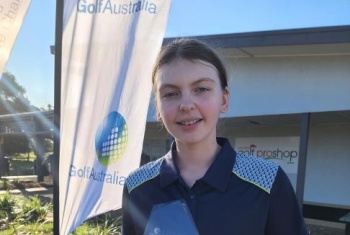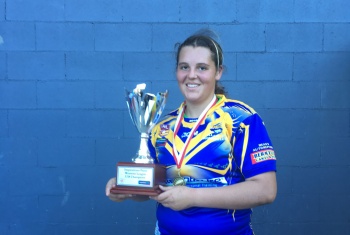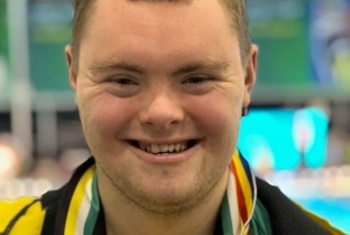When Lily Crawford swims for Australia in the INAS Global Games, it won’t be the 20-year-old’s biggest achievement for the year.
Despite representing her country in swimming at the global sporting event for people with an intellectual disability, Lily is making even bigger gains away from the pool.
Lily has secured employment for the first time, working five days a week at a Sydney CBD café, and it’s something her mum Laurel thought may never be achieved.
“When Lily was born we had no idea we were expecting a child with Down syndrome,” Laurel said.
“Frankly I was very ignorant and didn’t know anything really about Down syndrome, we didn’t know what level of independence she would have.”
Now, thanks to support from the NDIS, Lily has been able to secure a job that suits her.
After finishing school, Lily received NDIS funding for School Leavers Employment Supports (SLES) which allowed a local provider to support Lily during the transition from school to employment, during extended work experience in open employment, job site training and travel training.
Now Lily takes herself to work every morning, where she spends four hours a day running coffees, serving meals and packing dishes.
“I don’t think there is any way Lily could have got a job, especially not such a well-fitted job, without the NDIS SLES program, because she wasn’t job-ready.
“Now she takes public transport to and from work each day on her own.
“She loves the job and it’s a beautiful, supportive workplace, she’s learning a lot and getting great feedback from the customers.”
Lily continues to maintain her role alongside a busy training schedule, training five days a week at her local swimming club, with her NDIS funding also contributing to her swimming to allow her to increase her social and community participation.
The INAS Global Games is the second time Lily has represented her country, after swimming in the Down syndrome World Championships in Canada in 2018, where she came home with a gold medal for the 4x100m relay.
While her results are impressive, it’s the team spirit that is most important for Lily, who is the only person with an intellectual disability in her training squad.
“She likes belonging to things, she loves swimming with a squad, with her mates.
“She loves that she won a medal in Canada, but she was most thrilled that she did it as part of a team.”
For Laurel and her husband Mark, seeing how far Lily has come since they first signed her up for a baby swimming class at six months, has been amazing.
“We’re incredibly proud of Lily and her swimming, but the employment is the big piece, we really want her to feel like she’s contributing to the community and she’s part of the community she lives in.
“I love that Lily might now change other people’s attitudes about what young people with Down syndrome can accomplish and what they can do with their lives.”


